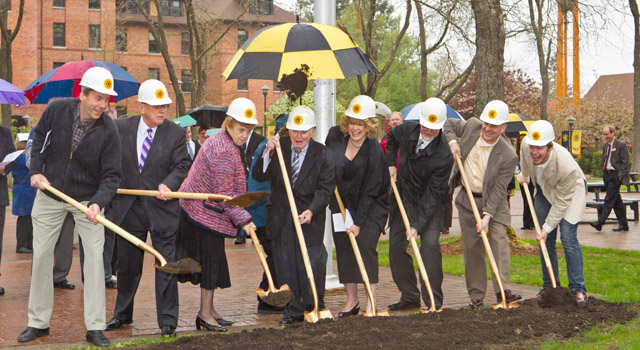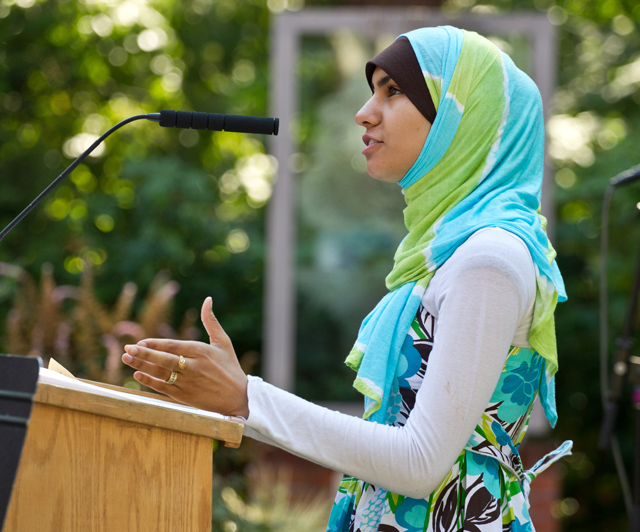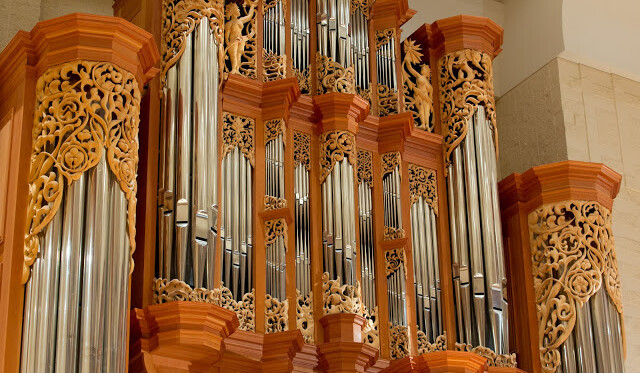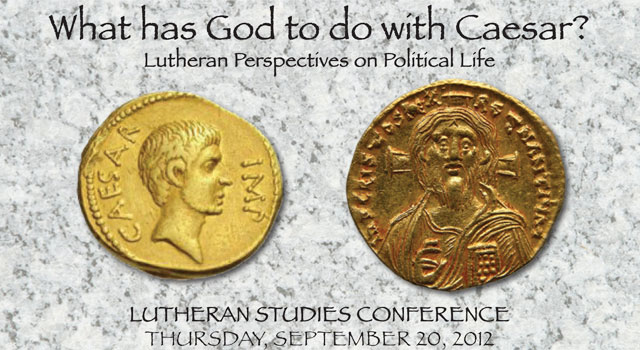Page 29 • (513 results in 0.028 seconds)
-

of the Eastvold Auditorium. Construction should be complete in 2013. It will be a place of learning, a new home for amazing theater, a religious center and a treasure for the whole south sound community, Anderson said. This has been a dream in-the-making for a long time, said Bruce Bjerke ’72, chair of the Board of Regents. “It just took all of these stories coming together to make this possible,” he said. Read Previous Loren and MaryAnn Anderson University Center dedicated Read Next Farewell
-

innocents, and that 9-11 was a political, not a religious act of violence. Representatives from the Secular Student Alliance, the Pan-Orthodox Organization and the Oseh Shalom Jewish Club also spoke at the gathering. On Saturday, the commemorative events continued, as the PLU community participated in a Day of Service. Volunteers helped individuals with yard work in the Parkland community. Finally on Sunday, the 10-year anniversary of the attacks, the first of the Richard D. Moe Organ Recital Series
-
StudentsWill PLU be requiring a COVID-19 vaccination?PLU will require all students — undergraduate and graduate — to be fully vaccinated against COVID-19 prior to arriving on campus for the fall semester, with case by case exceptions allowed only for medical or religious reasons. This policy, focused on the health of the campus community, is similar to our current requirements for measles, mumps, and rubella vaccination. Where COVID-19 vaccination exceptions are granted, the university may require
-
religious tenets with other types of African religions. They believe in a universal creator, who they call Shakapanga, the afterlife, communion between the living and dead, and the observance of good ethical conduct. Ancestor worship also plays a large role in their everyday lives. The pipes of the Luba people were used initially to smoke hemp, refined cannabis, starting in the 12th century, and tobacco starting in the 15th century. Both men and women smoked. However, locally grown tobacco is quite
-

added. Murphy-Mancini is looking forward to sharing his passion for early music and music by living composers. Murphy-Mancini will join PLU from the University of Southern Maine, where he currently serves as organ faculty in the Osher School of Music. He also brings his experience as director of church music at First Religious Society, Unitarian Universalist, in Massachusetts. He holds a Ph.D. in composition from the University of California, San Diego, an M.M. in historical keyboards from Oberlin
-

3:25: What comic book character would make the best President of the United States? 6:10: First thoughts on “interpret” – hermeneutics and production. 11:40: The responsibility of professional “interpreters.” 18:40 Similarities in modernizing super hero stories and the Bible. 22:10 The role of “edutainment” –why many interpretations prioritize being “interesting and fun.” 24:20 Common mistakes made by interpreters of theater and religion. 30:25 How religious and legal authorities adjust
-
dress and has a wreath of candles on her head. Lucia celebrations also take place in towns, churches, and schools throughout the country. The Sankta Lucia Fest has been an annual tradition at Pacific Lutheran University for seventy years. It is a very important tradition to the people of Sweden, and it is our desire to keep the tradition alive for Swedes and other Scandinavians in this area. Although it is not a religious ceremony, the Sankta Lucia celebration marks the beginning of the Christmas
-
a revolution. But when he questioned the Catholic church’s practice of selling indulgences in his famous Ninety-Five Theses in 1517, it was the beginning of an era of religious and political upheaval that would fundamentally reshape Europe. Luther’s challenge against the church, arguably the most powerful institution in the world at the time, was a bold statement. Since then, Lutheranism and the idea of reform have gone hand in hand. For many Lutherans, reformation is a constant process that
-
clergyman, seemed an unlikely man to start a revolution. But when he questioned the Catholic church’s practice of selling indulgences in his famous Ninety-Five Theses in 1517, it was the beginning of an era of religious and political upheaval that would fundamentally reshape Europe. Luther’s challenge against the church, arguably the most powerful institution in the world at the time, was a bold statement. Since then, Lutheranism and the idea of reform have gone hand in hand. For many Lutherans
-

the extreme religious left and right. In this context, the second Lutheran Studies Conference highlights the distinctive voice of Lutheran scholarship on the relationship between faith and politics. Through presentations, conversation, artwork, new publications, and the open exchange of ideas, participants will be inspired to consider the enduring question: What has God to do with Caesar? Presentations will be held from 2 to 5:30 p.m. and the keynote address starts at 7:30 p.m. Thursday, Sept. 20
Do you have any feedback for us? If so, feel free to use our Feedback Form.


